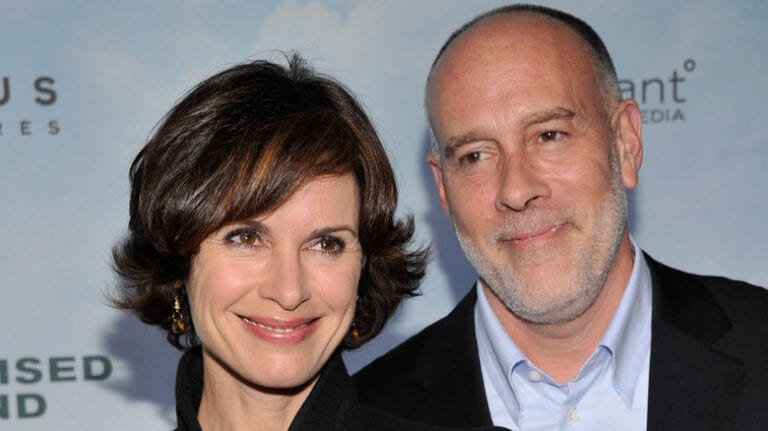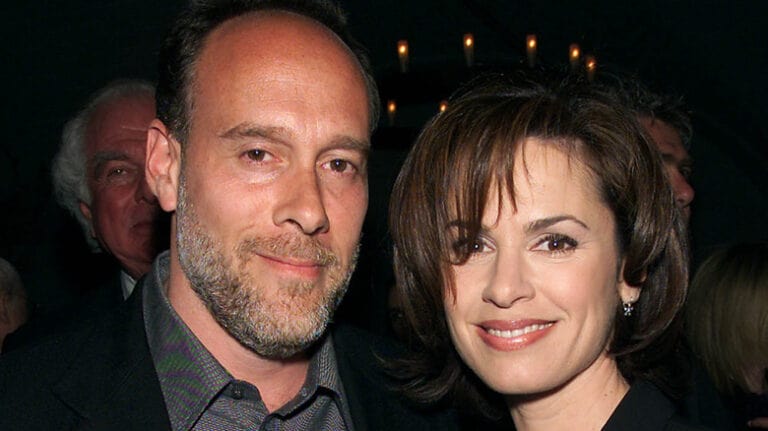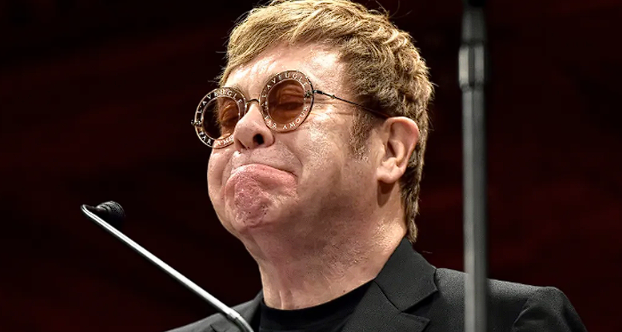Elizabeth Vargas exemplifies every quality a professional television journalist, anchor, and reporter should possess: She promotes herself as an intelligent, inquisitive, and knowledgeable source of data and a voice of reason.
She has been a dependable news source for close to 30 years, first on NBC newsmagazine shows, then as a co-host of ABC’s Good Morning America and as an anchor of 20/20 and World News Tonight. Her abilities and persona have served her well.
In recent years, Vargas quit the daily news grind in favor of long-form reporting for the A&E Network and hosting the relaunched America’s Most Wanted public service program for Fox.
Throughout her career as a journalist, Vargas has investigated, reported on, filed, and analyzed thousands of poignant stories of human interest. Her tale has been just as newsworthy and, at times, frightening behind the scenes as the stories she has delivered. Here is a glimpse of Elizabeth Vargas’s hardships and tragic experiences.

Even while there isn’t any actual physical danger, death, or sickness involved, extreme job stress and disappointment — especially if it involves celebrities — can be tough for the people who have to go through it.
According to Deadline, Vargas joined the rival ABC News in 1996 after receiving her first widespread exposure in the early 1990s on NBC News programs like Now with Tom Brokaw and Katie Couric and Dateline NBC.
Vargas was hired as the newsreader for the highly regarded AM program Good Morning America.
Vargas was progressing well at the morning program, and there was a “widely circulated notion… that she will replace Joan Lunden as Good Morning America anchor,” according to HispanicMagazine.com (via Puerto Rico Herald). That “didn’t pan out,” though.
Lunden left a year later and asked Oprah, “Where are they now?” that she was suggested to be too old at 46. Vargas was also overlooked by ABC News in favor of Lisa McRee.
Following her termination from Good Morning America, Elizabeth Vargas was hired by ABC News to work on several primetime newsmagazine programs, including 20/20, and was appointed a weekend news anchor on World News Tonight, according to Page Six.
That made Vargas practically ready to take over ABC’s nightly news show when it became vacant, if and when that happened. When anchor Peter Jennings passed away in 2005, the position sadly became available.
ABC announced Vargas and co-anchor Bob Woodruff as Jennings’ replacements four months later, as the AP reported (via Tampa Bay Times). Before ABC changed the composition of the squad, it lasted roughly six months.
According to NPR, Woodruff had to resign after sustaining a serious injury while working in Iraq, and Vargas revealed she was expecting and would be on maternity leave.

Vargas was allegedly forced out of her position by Charles Gibson, a former coworker on Good Morning America, according to New York.
If he didn’t obtain more money, a contract with more time left on it, and the position as the only anchor of World News Tonight, he allegedly threatened to quit ABC totally.
Vargas “had elected to stand down,” according to an announcement made by ABC on May 23, 2006, and Gibson would take over.
Vargas reiterated to the AP that she wasn’t fired despite the escalating rumors about what may or may not have occurred behind the scenes (via The Herald Tribune). She asserted that every woman has the right to make that choice for herself and her family without any criticism.
Elizabeth Vargas became addicted to alcohol at a young age. Her husband reportedly confronted her about her drinking, and she made some changes.
However, by 2009, she had resumed her heavy drinking, going to bars covertly, drinking two bottles of wine every night, and concealing alcohol throughout the house.
Vargas recalls drinking “everything in it” from the hotel minibar during a family holiday in 2012, leading to the need for IV rehydration. Following that, Vargas began a month-long recovery program but left midway through.
A few weeks later, according to ABC News, Vargas relapsed and developed a habit of drinking to relax before a New York interview. She recalls consuming alcohol both before and after the encounter, as well as getting into a car.
She later awoke at a hospital. “I have no idea what I did. I’m unsure of what I consumed “Vargas said to the source. She had stumbled into a park, where a kind stranger had assisted the journalist.
Vargas reported that after her discharge, she went back to treatment, this time for a full month. “She said she observed some men nearby that she didn’t like the look of who might have, at that moment, possibly viewed me as a weak person,” Vargas recalled.
When she relapsed once more in 2014, her brothers and coworkers in the news gathered to assist her in checking into a rehab facility.
Elizabeth Vargas told ABC News that she first began consuming alcohol when she was just starting her job as a journalist and would go out to a bar with friends at the end of the day.
Vargas learned that alcohol offered a momentary solace for the severe anxiety and panic attacks that had plagued her for years. It was like, “I can finally relax,” Vargas recalled. “All my anxieties would kind of go away again.”
The TV journalist said in her autobiography Between Breaths that she first experienced anxiety as a young girl and regular panic attacks as a result of her father’s deployment to fight in the Vietnam War. Instead of confronting her worry head-on, she sought to stifle it because she felt ashamed of it.
Vargas admitted on The View that by the time he was a teenager, he was “white-knuckling my way through” (via The Hollywood Reporter).
“I was sick nearly every day,” She continued to have problems as an adult, and before newscasts she would tremble so violently and feel unwell that she was given beta blockers.
When she could no longer control or conceal her panic episodes during her time on 20/20, she sought help.
Marc Cohn, a singer-songwriter and the creator of the modern classic “Walking in Memphis,” dropped by the locker room at the 1999 U.S. Open to say hey to his friend Andre Agassi. Cohn won the 1991 Grammy Award for Best New Artist.
According to the New York Times, Cohn met Elizabeth Vargas there in an effort to secure an interview. They got along, got married three years later, and soon afterward had two sons together.

Unfortunately, Cohn filed for divorce in 2014, indicating that the union did not last for the long run. Vargas had recently returned from a stay at a drug and alcohol rehab center after having a relapse in her alcohol addiction treatment, which only made matters worse.
Without Vargas’ knowledge, Cohn had hired a lawyer and begun the divorce process while she was receiving therapy. Even worse, insiders who talked to Page Six claim that Cohn had an affair with Ruth Zukerman, a co-founder of Flywheel, while his separated wife was in rehab. Cohn stated, “I have no comment regarding ugly rumors about a so-called “affair,” in a statement given to the Daily Mail.
Elizabeth Vargas’s ex-husband Marc Cohn was shot in the head while on tour in August 2005. A man allegedly tried to carjack the band’s van during a stop in Denver, according to the Denver Post.
When the assailant fired a gun at the van, a bullet skimmed Thomas Dube, the driver and tour manager, and struck Cohn in the temple.
Both Dube and Cohn received care at a nearby hospital; Dube was soon released, whilst Cohn was given the all-clear to return home after a few days of recovery.
Sonny Jackson, a spokesman for the Denver Police, told reporters, “Honestly, I can’t tell you how he lived.” The doctors called Cohn “the luckiest unlucky guy they had met in a long, long time,” Cohn recalled to People.
As fortunate as he is, the attack left him with lasting emotional wounds.
In light of everything, Vargas said on 20/20, “I think the thing I’ve learned is sensitivity to people who have experiences like this, going forward.”
“I think my spouse will truly be dealing with the psychological ramifications of what happened long after the physical wounds have healed.”
Cohn told the Seattle Times that “post-traumatic stress doesn’t completely go away” but added that “it’s gotten much better” two years after the shooting.




